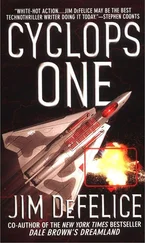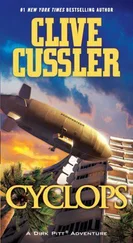A weird thought tickled Melkior hard.
“You must have discussed this long and loud with Don Fernando?”
“Discussed what?”
“Why … preventive action. ”
“Could be, I don’t know really … He wants to save mankind, no less, and I want mankind to leave off. ”
“To be destroyed … by war?”
“Nonsense, sensible Eustachius! Wars nurture it, multiply it. War is a sign of rage. I want a peaceful liquidation, a sort of bankruptcy — everyone realizing the deal’s off … and joining the ranks of eunuchs. Infertile women no longer give birth to living dolls; as for everything else, let microbes devour the lot. Let them eat all the books and the museums, the cities and the machines, they’ll devour each other in the end … only the Spirit will remain to move upon the face of the waters as in the opening chapter of Genesis.”
“But what’s the point of all that?”
“What’s the point of all this , life-saving Eustachius? Perhaps you’re hiding meaning in your pocket? So, show it to me!”
Maestro bared his teeth at Melkior like a dog at a helpless man, feeling the advantage. Melkior was alarmed: he may go for me next with those teeth …
“Don’t fear, Eustachius,” laughed Maestro quite mildly, “we won’t start with you. We’ll start somewhere much closer, heh-heh, much, much closer … Here, see for yourself — no books. I’ve gone without long since. I gave them to someone downstairs — a Russian, a count, a general, a relative of the Grand Prince. Not to read though — he’s even forgotten his Russian — but … he cuts and pastes paper silhouettes and presses them with books. That’s how the general makes his living, in noble penury, in rags worn with dignity. Here’s another use for books — to press the imagination of the Grand Prince’s relative. Habent sua fata libelli.”
ATMAN never returned the Adler book, remembered Melkior with regret, which presumably reflected in some feature of his face.
“Don’t frown, bookish Eustachius — the book does not deserve our respect. Verily, verily I say unto thee that thought, imagination, feeling, have gone dull in lead and resin. The book has imposed on the spirit a stupid, heavy (particularly heavy!) and totally unsuitable corpus. Did you ever wonder, featherweight Eustachius, why the book needed such weight? If there’s anything ridiculous in this world, it’s that weight. We glorify Guttenberg … for what? For transforming thought into a brick. To conserve the thoughts inside! Mummies, dried cods. Bourgeoises, garamonds, minions, italics … for thoughts to be ‘clear,’ to be preserved for generations to come. Homer and Socrates never wrote a single letter between them, and yet they were preserved for generations to come. Did Socrates need italics to make his thoughts clearer? While our Don Fernando drives typesetters up the wall with his italics and boldface, the better to set out some par-ti-cu-lar thought for posterity. Pharaoh Don Fernando (life — health — power) wants his mummy to be prepared carefully for distant centuries … but what of it? In a year or two it’ll be nothing but a dried cod — with no head, of course.”
Melkior was grinning. He was enjoying the image of the “headless dried cod.” A malicious imp of revenge was having its field day inside him. He tried to set his own “modesty” against Don Fernando’s “pharaonic grandeur” and bask in it.
“Smiling, Eustachius? You think his mummy will be anything more than a dried fish?”
“It will indeed,” replied Melkior ambiguously. “Don Fernando has some engaging notions. He has expounded them to you, too …”
“Expounded … yes …” Maestro’s mind had already moved on to something else. “Death disgusts me, Eustachius. I’m imaginative enough, I can picture my own skeleton, and it’s a horrible sight. Take a look, Eustachius — is my bald spot dirty?” he bent his head low: the denuded pate featured a mud-dirtied bruise, “I like cleanliness.”
“Why, they hit you on the head, too!”
“No, no, of my own volition I lay down on my back … in the middle of the road, in lieu of a protest rally, for freedom of movement …”
Maestro was speaking rapidly, in a muddle. He meant to hide from Melkior that he had been thrown out of the café head first. His “protest lie-down” was an ad-lib.
“But you’ve got a bruise on the top of your head?”
“Never mind, it’s not a bruise, it’s my beret leaking blue dye …”
“It’s muddy. You should clean it. The nose, too.”
“The pate I’ll clean, of course. But not the nose!” he declared defiantly.
“The nose is not dirty — it’s bloody, which makes all the difference. Tomorrow I’ll appear, bloody nose and all, at the Corso when the whole crowd is there.”
“But what’s the use of parading it in public?”
“What’s the use? It’ll be a public indictment! I’ll show the culprit up (as nose is my witness), I’ll thrash him, I’ll raze his nose to the ground! Right there, in front of everyone! Perhaps even Městrović will be there!”
Again Melkior felt the burn of the evening’s café tableau: Freddie with Viviana. “Why did Freddie go for you? Was he alone?”
“What do you mean, alone? Everyone was on his side! All the waiters, the cooks … even the cleaning lady in charge of the restrooms. Aah, if he’d been alone, then his nose would have looked like this!”
His nose is now grazing on her fragrances … his imagination tormented Melkior.
“I mean, did Freddie have company?” he was purposely stoking Maestro’s hatred.
“What’s the thrust of this diplomacy, Eustachius?” Maestro gave a sly wink. “Trying to set me up, eh? You know who he was sitting with, heh-heh, and that’s why you’re asking.”
Melkior felt a blush sear his face. Well, it’s a lucky thing the old boy’s so drunk … also, he was relying on the poor light of the oil lamp.
“Don’t go red, Eustachius. Or perhaps white, I can’t see in this light, but it’s just as nice. Out with the soul, that’s what I like.”
Melkior was crestfallen and silent as a sinner. Maestro sank a brandy, then poured an entire bottleful of beer down his throat. Where does he find room for it all, wondered Melkior in passing, but he was not really giving it much thought. Again he felt the disorder inside him. He keenly wanted to get up and leave (he’ll get me all confused), if only to go back to his room, or to walk through town in the rain, to count his steps and his thoughts … to think alone, walled in by the ramparts of his endless solitude. Maestro now appeared to him, in the dim lamplight, to be an unreal man whom he had invented and projected out before him cinema style. Maestro was still talking, but what reached Melkior was only sound in the strange acoustics of a dream; the words themselves he couldn’t follow.
“Have you ever thought about it, Eustachius?”
Melkior said nothing. He watched Maestro’s pale skull move up there, above his own head and, how strange … thoughts are happening “in there,” words emerging, moving through space and ringing in my ears, but my brain is no longer taking them in. He wanted to get up and go, but instead he stretched his legs under the table and, yawning, raised and lowered his elbows like a crowing rooster. Indifferently, I couldn’t care less …
“I’ll brew coffee forthwith, fragile Eustachius. You’ll fall asleep at the table in the end, and we haven’t even got to the subject. I’m purposely beating around the bush. Do you think I give a fig about the burning of witches? Hah … although I was not speaking off the top of my head. Sometimes I think — for such is my life — that I was born conjoined to a twin. They cut us apart, but one of us had to die. It was he who died. And so, you see, he has been pestering me ever since. Dead alongside me, he keeps saying: let’s face it, you’re only half a man. That’s how I feel, Eustachius — I drag behind me a skeleton.”
Читать дальше












